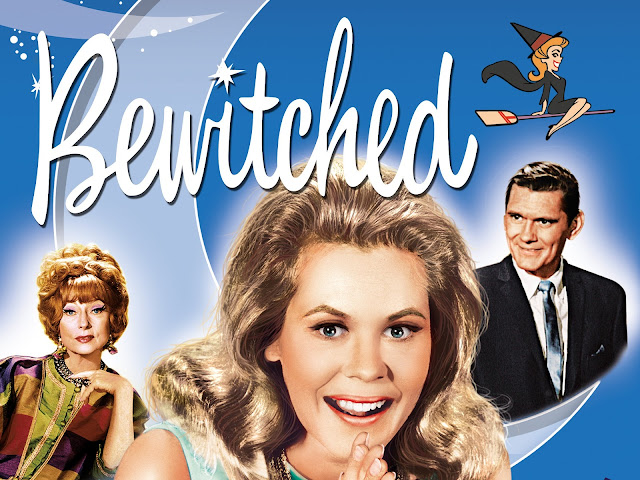In the 1960s, nose jobs were considered de rigueur for young, upwardly mobile Jewish women.
Thursday, June 16, 2022
 Thursday, June 16, 2022
Thursday, June 16, 2022 Elder of Ziyon
Elder of Ziyon Bewitched, Jewish geography, Jewish values, popular culture, television
Bewitched, Jewish geography, Jewish values, popular culture, television
"Bewitched" was a hugely popular TV series about a witch Samantha, who marries mortal man Darrin Stevens. Most plots involve her magical relatives meddling in her marriage, especially her disapproving mother, Endora.
The show was created by Sol Saks under executive director Harry Ackerman and director William Asher. Saks and Ackerman were Jewish, Asher's father was Jewish and he married Bewitched's star, Elizabeth Montgomery.
Many people see the show as an allegory for the Jewish American experience. Samantha comes from the old country but wants to assimilate in American society, while her relatives disapprove of her mixed marriage to a mortal. Endora looks very "foreign."
Darrin loves her but wants her to be a "normal" woman and not perform her strange rituals. He's tolerant - but not that tolerant.
In the pilot episode, when Darrin marries Samantha, the theme of prejudice is made explicit. Endora says, "You’re still very young and inexperienced. You don’t know what prejudice you’ll run into!" And later, when Samantha first tells Darrin her secret, he exclaims, "Okay, if you're a witch, where's your black hat and broom and how come you're out when it isn't even Halloween? Samantha answers, "Mother was right, you're prejudiced!"
There is one other telling incident in the pilot. Darren's ex-girlfriend Sheila invites the newlyweds to a party, where she attempts to demean Samantha as not being sophisticated while making snide comments. At one point, Sheila engages Samantha in a conversation - about nose jobs:
“Do you know Dr. Hafter, dear? Samantha?”
“Beg your pardon?”
“Dr. Hafter, do you know him?”
“No.”
“The plastic surgeon. Does beautiful nose work.”
"No, I don’t know him.”
”Funny, I could have sworn…”
In the 1960s, nose jobs were considered de rigueur for young, upwardly mobile Jewish women.
In the end, as much as Samantha tries to assimilate and stop doing her magic, she can never deny her witchhood.

 Elder of Ziyon
Elder of Ziyon

























